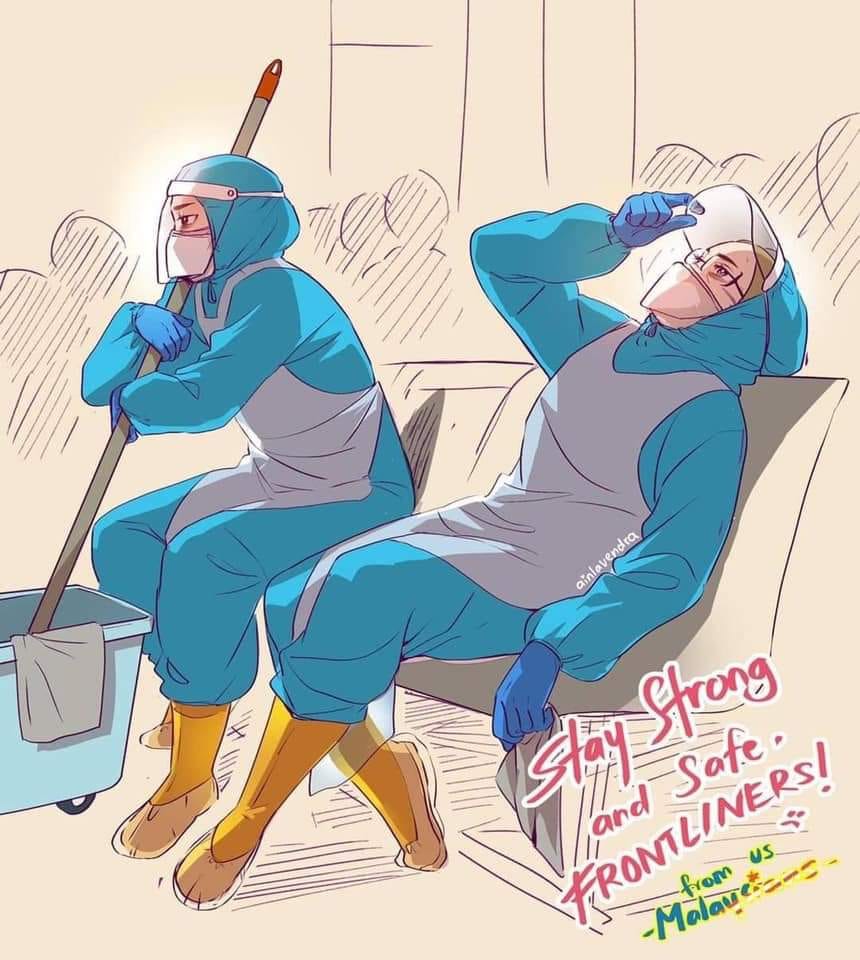BC Health Care Workers Demand Broader Support
The Hospital Employees' Union (HEU) represents the majority of workers, excluding technicians, nurses and doctors, in hospitals throughout the province, both those who work for the Health Authorities and those who work for the multinationals which contract for housekeeping and food services throughout most of the province. On April 4, the union sent a letter to the Health Employers Association of BC (HEABC) outlining the supports that are urgently needed for health care workers to be able to carry out their responsibilities to the people of the province. The letter reads in part: "Our health care system has never experienced a crisis on the scale of the COVID-19 pandemic. And there has never been a time when it was more evident that it takes an entire team of health care workers to provide care and support to British Columbians. But this health crisis is also bringing many of the inequities in the treatment of workers across the system into sharp focus. "This unprecedented public health challenge has exposed the fragmented nature of health care delivery in our province -- complicated service delivery and employment relationships within health authorities, and a myriad of non-HEABC operators and collective agreements among health authority contractors. "It's a problem that's evolved over the last twenty years, and with these changes come deep inequities in the treatment of workers, with wages and benefits varying widely from site to site. "And as we have all experienced over the last few weeks, mounting a coordinated health system response to the pandemic, especially in terms of allocating and redeploying workers, is extremely challenging under these circumstances. "It's certainly contributed to the anxiety and confusion our members experience as they work on the front lines of the pandemic and prepare for what lies ahead. The world is changing for every health care worker. [....] "Workers are afraid of being exposed to the virus at work or bringing it home to their families. "They face long hours at work only to face empty shelves at the grocery store at the end of their shift. "They often can't leave their unit or work area to get food on their breaks, or can't bring food to work because there's nowhere to store it. "They're told to bring a change of clothes to work and take their work clothes home in a sealed bag to launder. But in many cases the laundry facility in their apartment building has been closed for public health reasons and there is no open laundromat in their neighborhood. "Transportation has become more challenging and many have had to make alternate arrangements to get to work, or will face additional transportation costs when single site orders come into place. "Workers may also need to find alternate shelter, and make alternate child and elder care arrangements. "HEU members understand that they are critical to helping patients, residents and other workers stay safe in this crisis. They are showing great resilience in the face of this pandemic. "But many of these workers have had their wages, benefits, and working conditions decimated over the years of privatization, contracting out and rollbacks. The irony that they are suddenly critical to the effort to fight COVID-19 isn't lost on them -- nor is HEABC's decision to target a broad benefit solely to nurses.
- Provide enhanced meal allowances, such as those in the FBA [Facilities Bargaining Association] collective agreement, and provide them on every shift to every worker. - Provide or increase uniform allowances so that workers can buy shoes and clothes. Provide meals for workers who can't leave their units during their shift. - Address transportation costs for workers who need to travel further or take taxis. - Implement a 'Health Care Worker COVID-19 Pandemic Support Allowance' which would support workers in addressing their particular needs. "We believe that employers and government must provide supports to frontline-workers fighting this pandemic. Such supports need to be extended to all workers across health and community agencies, regardless of employer. One necessary step is levelling up sick leave provisions. "There are other inequities that must be addressed. Hospital housekeepers are key to keeping our facilities virus free. Yet in our major hospitals they are paid less today than they were during the SARS crisis 17 years ago -- the result of privatization. Dietary workers are similarly paid substandard wages that are not sustainable." Emergency measures are needed to ensure that the health and safety of all health care workers and their families are guaranteed in the conditions of the pandemic. Permanent measures will also be required to put an end to privatization and mistreatment of health care workers whose essential role has to be acknowledged with actions.
This article was published in Article Link: Website: www.cpcml.ca Email: editor@cpcml.ca |
 "There
are several ways in which health employers and government can provide
material support to the workers who are getting us through this crisis:
"There
are several ways in which health employers and government can provide
material support to the workers who are getting us through this crisis:

